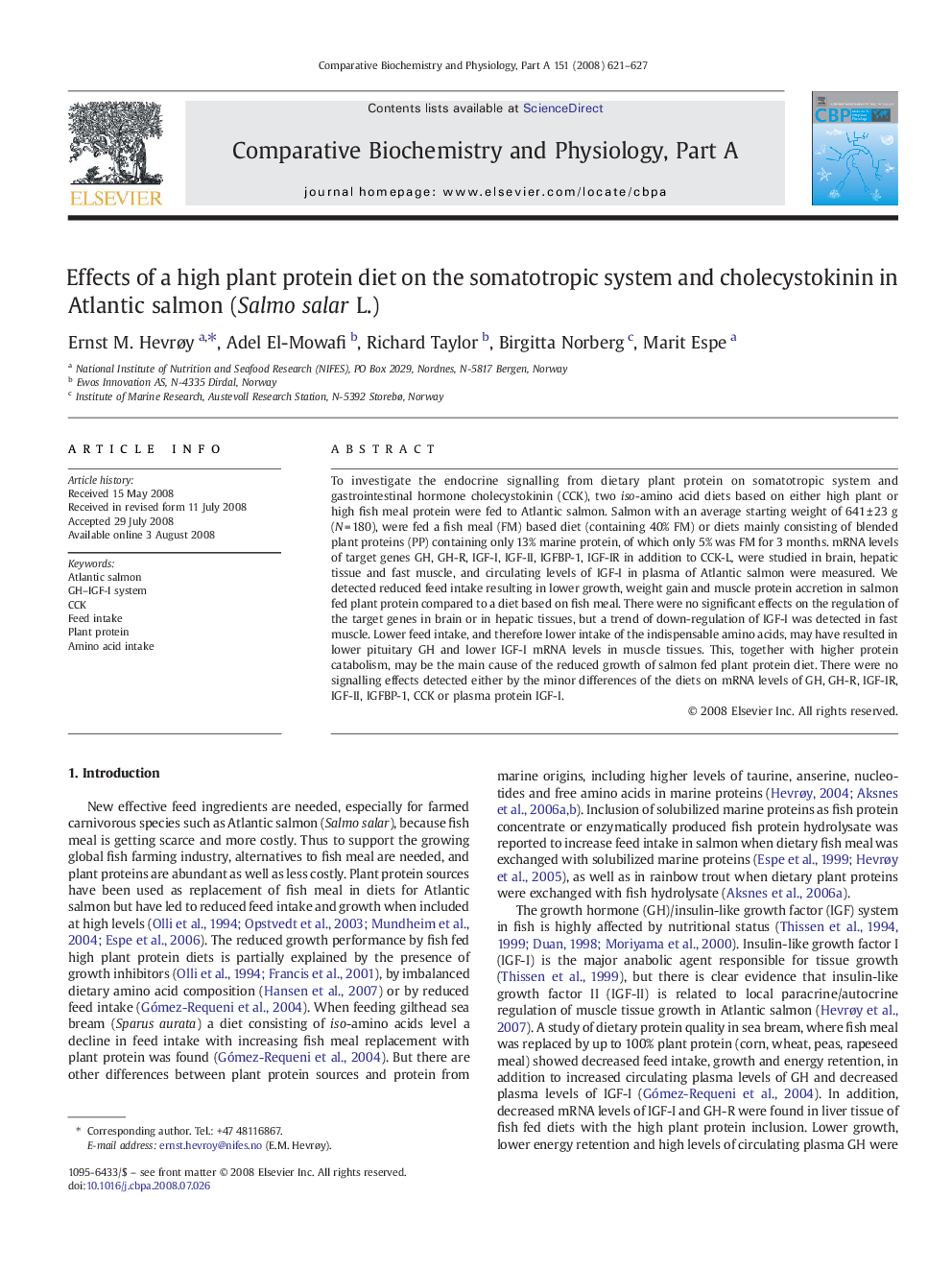| Article ID | Journal | Published Year | Pages | File Type |
|---|---|---|---|---|
| 1973396 | Comparative Biochemistry and Physiology Part A: Molecular & Integrative Physiology | 2008 | 7 Pages |
To investigate the endocrine signalling from dietary plant protein on somatotropic system and gastrointestinal hormone cholecystokinin (CCK), two iso-amino acid diets based on either high plant or high fish meal protein were fed to Atlantic salmon. Salmon with an average starting weight of 641 ± 23 g (N = 180), were fed a fish meal (FM) based diet (containing 40% FM) or diets mainly consisting of blended plant proteins (PP) containing only 13% marine protein, of which only 5% was FM for 3 months. mRNA levels of target genes GH, GH-R, IGF-I, IGF-II, IGFBP-1, IGF-IR in addition to CCK-L, were studied in brain, hepatic tissue and fast muscle, and circulating levels of IGF-I in plasma of Atlantic salmon were measured. We detected reduced feed intake resulting in lower growth, weight gain and muscle protein accretion in salmon fed plant protein compared to a diet based on fish meal. There were no significant effects on the regulation of the target genes in brain or in hepatic tissues, but a trend of down-regulation of IGF-I was detected in fast muscle. Lower feed intake, and therefore lower intake of the indispensable amino acids, may have resulted in lower pituitary GH and lower IGF-I mRNA levels in muscle tissues. This, together with higher protein catabolism, may be the main cause of the reduced growth of salmon fed plant protein diet. There were no signalling effects detected either by the minor differences of the diets on mRNA levels of GH, GH-R, IGF-IR, IGF-II, IGFBP-1, CCK or plasma protein IGF-I.
